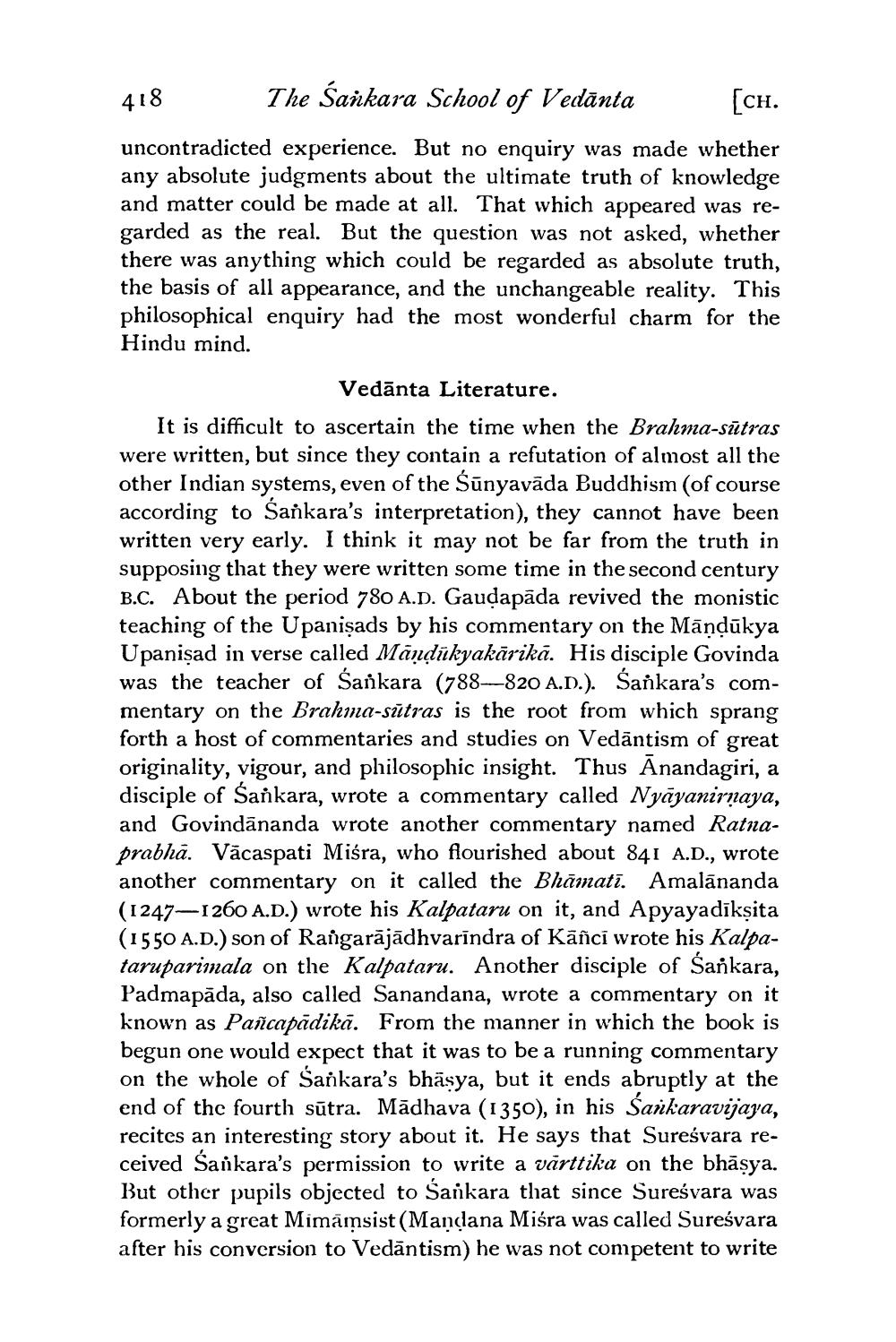________________
418
The Sankara School of Vedānta
[ch.
uncontradicted experience. But no enquiry was made whether any absolute judgments about the ultimate truth of knowledge and matter could be made at all. That which appeared was regarded as the real. But the question was not asked, whether there was anything which could be regarded as absolute truth, the basis of all appearance, and the unchangeable reality. This philosophical enquiry had the most wonderful charm for the Hindu mind.
Vedānta Literature.
It is difficult to ascertain the time when the Brahma-sūtras were written, but since they contain a refutation of almost all the other Indian systems, even of the Śūnyavāda Buddhism (of course according to Sankara's interpretation), they cannot have been written very early. I think it may not be far from the truth in supposing that they were written some time in the second century B.C. About the period 780 A.D. Gaudapāda revived the monistic teaching of the Upanişads by his commentary on the Māndūkya Upanişad in verse called Mandikyakārikā. His disciple Govinda was the teacher of Sankara (788—820 A.D.). Sankara's commentary on the Brahma-sūtras is the root from which sprang forth a host of commentaries and studies on Vedāntism of great originality, vigour, and philosophic insight. Thus Anandagiri, a disciple of Sankara, wrote a commentary called Nyāyanirnaya, and Govindānanda wrote another commentary named Ratnaprabhā. Vācaspati Miśra, who flourished about 841 A.D., wrote another commentary on it called the Bhāmati. Amalānanda (1247—1260 A.D.) wrote his Kalpataru on it, and Apyayadiksita (1550 A.D.) son of Rangarājādhvarīndra of Kāñci wrote his Kalpataruparimala on the Kalpataru. Another disciple of Sankara, Padmapāda, also called Sanandana, wrote a commentary on it known as Pañcapădikā. From the manner in which the book is begun one would expect that it was to be a running commentary on the whole of Sankara's bhāsya, but it ends abruptly at the end of the fourth sūtra. Mādhava (1350), in his Šankaravijaya, recites an interesting story about it. He says that Sureśvara received Sankara's permission to write a vārttika on the bhāsya. But other pupils objected to Sankara that since Sureśvara was formerly a great Mimāmsist (Mandana Miśra was called Sureśvara after his conversion to Vedāntism) he was not competent to write




